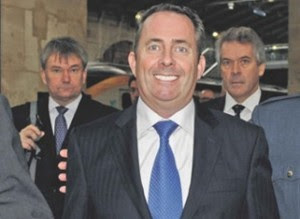 Contrary to the coalition's spin, ministers have consistently refused to negotiate
Contrary to the coalition's spin, ministers have consistently refused to negotiateIn the last few days we have heard some extraordinary claims from the government about my union's involvement in what have been unnecessarily fractious and frustrating talks over public sector pensions.
This peaked yesterday [Tuesday] with an outrageous claim in parliament by Danny Alexander that we had "walked away" from the negotiating table.
This was grossly misleading. In fact, the government is attempting to exclude us from future negotiations, making good on a threat first issued by Cabinet Office officials at the end of last week.
Not only do we believe this is unlawful, the truth is the blockage in the talks has come from a Tory-led government intent on cutting public sector pensions. And why? To raise money to pay off a budget deficit caused by the failure and greed of the banks, and to make it easier to privatise more of our public services.
Ministers have consistently refused to negotiate. From the announcement in the June 2010 budget, without any prior consultation or negotiation, that pensions would rise by the consumer prices index instead of the traditionally higher retail prices index, to the increase in employee contributions, to linking scheme pension ages with the state pension age.
To nail another lie that ministers have tried to distract people with, PCS has been at every single meeting with officials and ministers. I have attended every meeting centrally with Mr Maude and Mr Alexander - though they haven't met us since 2 November - and my deputy has attended all the meetings with their officials about the design of any new scheme. The problem is, these meetings can only discuss ways of implementing the government's cuts to pensions, when what we need are proper negotiations with ministers about the core issues.
In continuing to block this kind of discussion, they want to force public servants to pay hundreds of pounds more each year and work up to eight years longer for much less in retirement - in many cases, tens of thousands of pounds. This was their position when hundreds of thousands of civil and public servants, teachers and lecturers took strike action on 30 June; it remained their position when two million public sector workers were on strike on 30 November; and it remains the case today.
Faced with this, and the government's bullying tactics, what would any reasonable person do? We believe that if it was right to strike in June and November, it's right to continue to oppose these things now.
Other unions will make their own decisions and account for them. But we could not, in all conscience, recommend this dire package of cuts to people who are in the middle of a two-year pay freeze, facing the prospect of at least a further two years of pay capped at 1 per cent.
The TUC has estimated that by the end of the pay freeze and cap, living standards will have dropped by 16 per cent. In this context, the government's raid on pensions - orchestrated by a cabinet of millionaires - looks like legalised theft of the worst kind: taking from those who can least afford it, to pay for economic problems caused and exacerbated by the very wealthy.
Our national executive will meet on 10 January to discuss where we are and where we go next. But we are clear that to reach an agreement there needs to be compromise on both sides, and there has been none by the government on the issues of substance to millions of public servants.
We want to reach an agreement, but we will not be bullied into signing away our members' futures to satisfy a political project run by Tory millionaires and propped up by Liberal Democrats.
Mark Serwotka is general secretary of the Public and Commercial Services Union


































